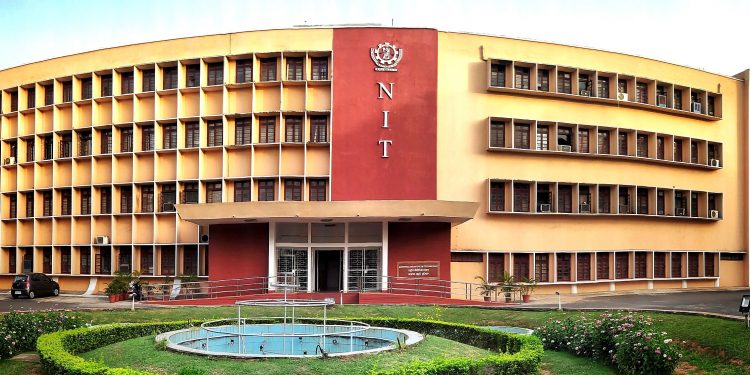Rourkela: After three years of National Education Policy (NEP) 2020, NIT Rourkela has decided to implement this new system fully starting this academic year. Meanwhile, a programme was organised at Pragati Maidan in New Delhi July 29 and 30, where the Akhil Bharatiya Siksha Samagam (ABSS) was held to mark the occasion. Interacting with media, NIT, Rourkela Director Professor Umamaheswri Rao explained about the salient features of the NEP-2020 and how this will benefit the students. Dean (Academics) S Chakroborty, Registrar Rohan Dhiman, and Chairman PPRC Himansu Sahu were also present with him. “The point is we want to tell you how much we have realised about the NEP-2020 which was unveiled three years ago,” said the Director. This premier institute of the country invited academics of repute for interaction and discussion for smooth implementation of the same. He informed me that a huge framework was being prepared to implement the new policy at NIT, Rourkela. One of the most important features of the NEP-2020 is the national credit framework (NCF). “The NCF is nothing new.
However, it was very much teacher-centric before. Now it is more student-centric. Now, the student has the independence to choose his own credit system according to his choice,” informed Prof Rao. He further explained, “Globalised education has no boundary. It goes beyond the political boundary of a country. Now we see globalisation, digitalisation and finally horizontalisation of education.” Much more emphasis is being laid on the digitalisation of education due to globalisation. “But, the most important aspect now is horizontalisation. Horizontalisation is when the student can opt for enhancing his educational qualification through a horizontal choice of subjects of his interest along with his main subject. Here everything is interconnected. The student-centric system has no inadequacy. Earlier it was more theoretical and now it is more open and practical.”
Elaborating his point further he said, “Sundar Pichai is the best example. His specialisation is metallurgical engineering but now see where he is and what he is doing. These days, companies want different graduates. Earlier, the new GETs would undergo training periods and then get confirmed. But, now the companies want that the new entrants should run from the first day and must be shop floor ready. And this system is going to prepare versatile talents not just single dimensional.” The student will definitely pass out with 160-grade points at the end of four years. But, the new system would allow the student to add more grade points along with his main subject.
So any student passing out through this system would have at least a minimum of 20-30 more grade points. The student would have a dual degree depending on his preferences during the educational journey. And this journey would end at the end of eight years depending on the student’s preferences to do courses. The journey could include inter/multi/trans-disciplinary courses. “A student can go out of the institute at the end of the first year and we will give him a foundation in engineering certificate to join a job or course elsewhere and come back to join after completing that. One can also do the same at the end of 2nd year and we will give him a diploma certificate and then he can come back and join after one year and join the 3rd year.
And it depends on him to join the institute of his own choice provided we have an arrangement with the institute. And during this period he would also earn valuable credit points,” said the Dean (Academics) S Chakraborty. NIT Rourkela has already signed MoUs with IIT, Bhubaneswar, IIT, Hyderabad, and NIT Raipur. This year 10 NIT, Rourkela students are going to join IIT, Hyderabad. Another critical point is the lifelong learning process, which allows anyone to pursue academics at any age. “Here in NIT Rourkela, our oldest student is a retired GM from Rourkela Steel Plant and he is joining us for a PhD programme in humanities at the age of 74 his name is Balbir Singh, through LLP,” he said.






































